Pigeons often love to nest underneath solar panels making them difficult to access and clean. This can lead to dirt and debris buildup, resulting in decreased energy efficiency and costly repairs.
Fortunately, there are ways to pigeon-proof your solar panels, enabling them to operate at their fullest potential and reducing the need for ad-hoc expensive maintenance and replacement.
Pigeon proofing involves placing physical barriers around the solar panels to prevent birds from accessing the system.
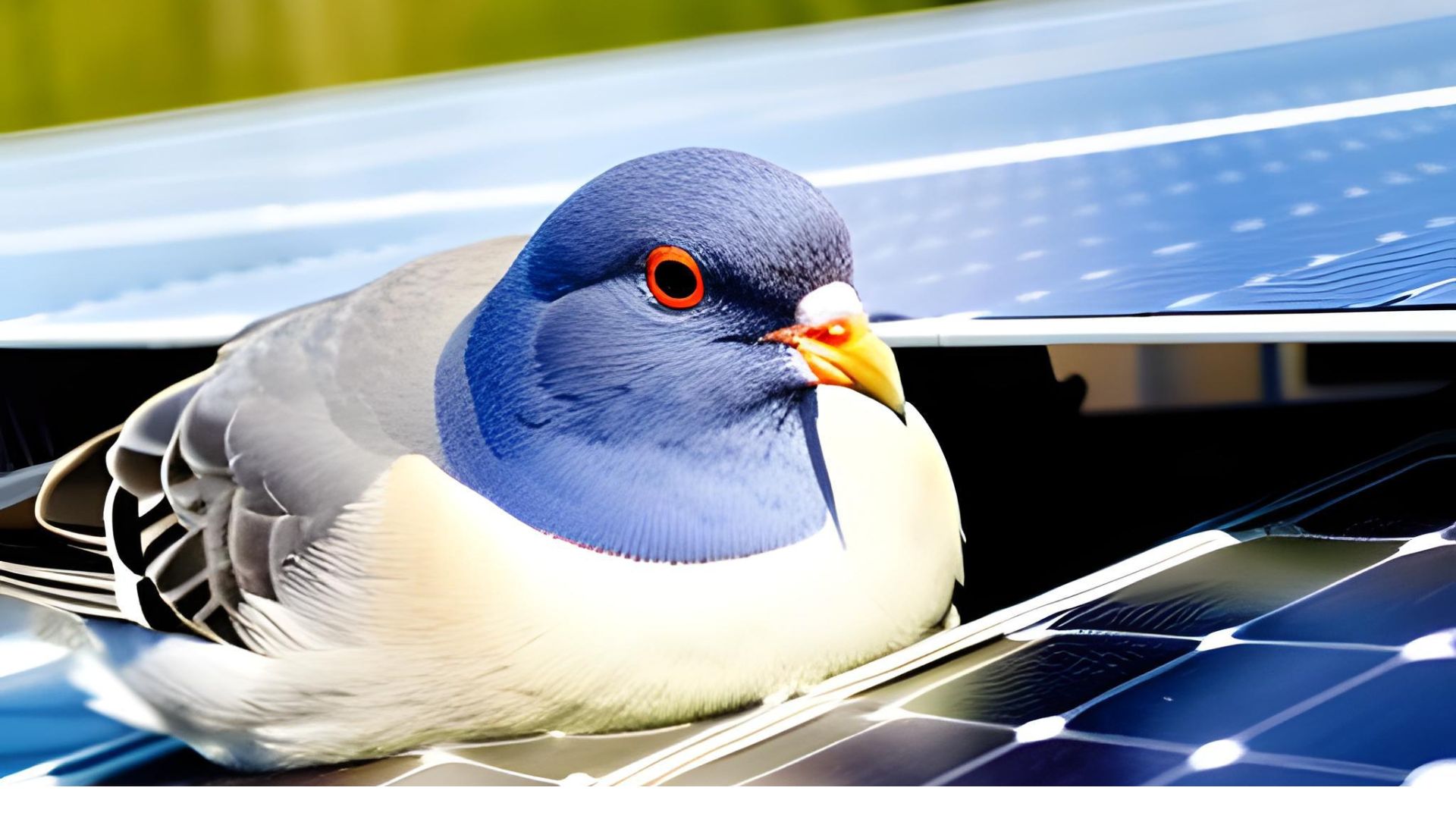
Bird Proofing Options
There are several bird proofing options available to homeowners and businesses, depending on the size and type of birds present.
Each proofing option has its own advantages and drawbacks, so it’s important to assess the situation before selecting a method.
- Bird Mesh: Bird mesh is a fine mesh netting designed to keep birds away from solar panels. Bird mesh is lightweight and flexible, which makes it easy to install over the panels. It also offers a discreet solution that won’t affect the overall aesthetic of the roof. However, bird mesh can be expensive and requires regular maintenance to ensure it is still effective.
- Bird Spikes: Bird spikes are a more permanent solution, designed to keep birds away from solar panels. The spikes create a physical barrier that birds cannot cross. They are relatively inexpensive and easy to install, but can be unsightly and difficult to remove once installed.
- Bird Netting: Bird netting is a heavy-duty netting designed to keep birds away from solar panels. It is much stronger than bird mesh and can protect the solar panels from larger birds. However, bird netting is more expensive than mesh and requires more maintenance over time.
- Electric Bird Repellents: Electric bird repellents are a more extreme solution, designed to keep birds away from solar panels. The repellents use sound, light, and other deterrents to scare away birds. They are effective, but can be costly and require regular maintenance.
When selecting a bird-proofing option, it’s important to consider the size and type of birds present, as well as the overall cost of the solution.
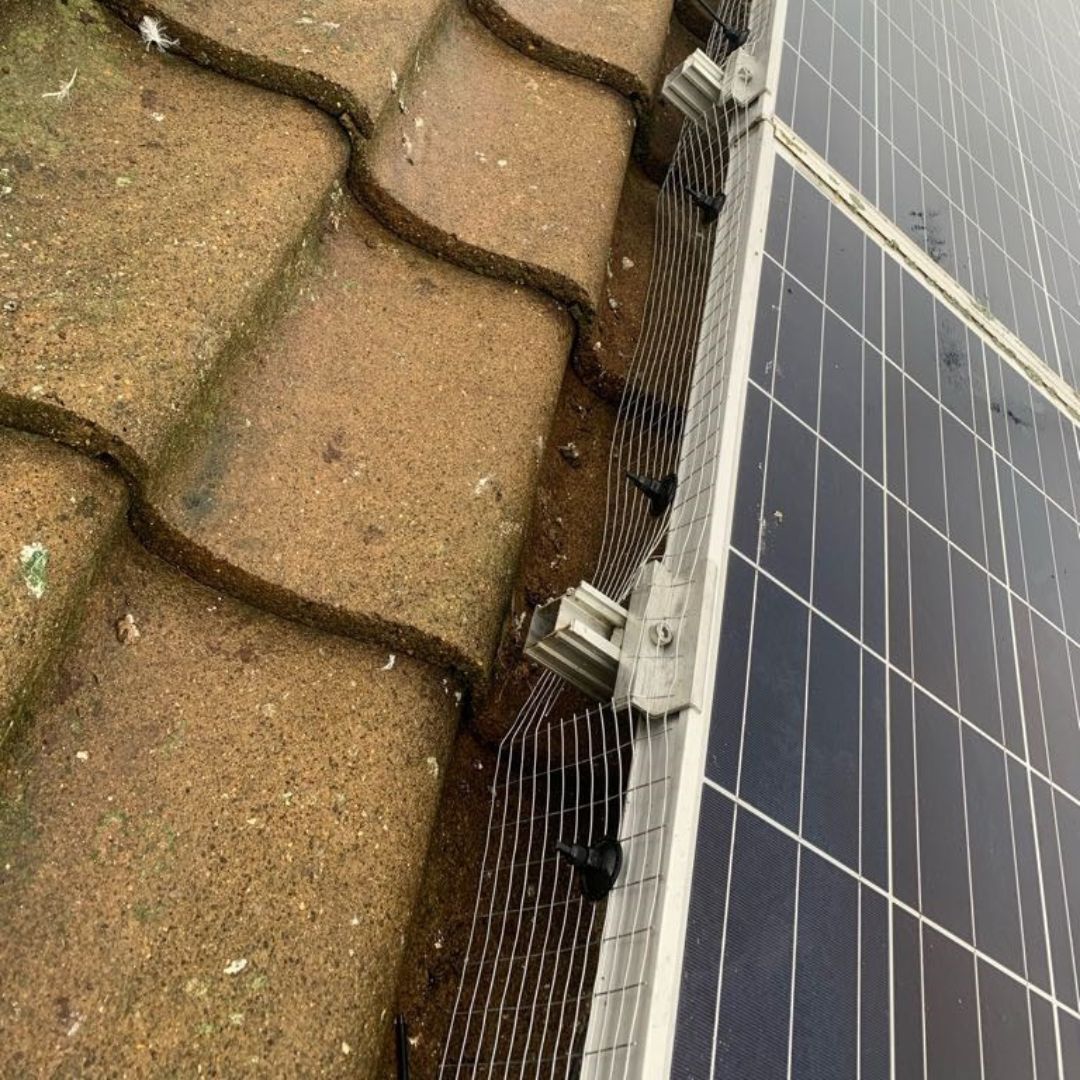
Cost Considerations Of Bird Proofing Solar PV Systems
The cost of bird proofing can vary depending on the size of the solar panel array, the type of bird proofing option chosen, and other factors such as the complexity of the job and the materials involved.
For homeowners, the cost of bird mesh is relatively low, with a roll of mesh usually costing around £50 to £100. Bird spikes are also relatively inexpensive, with a pack of spikes costing around £25. Bird netting is slightly more expensive, with a net typically costing between £150 and £200. Electric bird repellents can be quite costly, with a unit costing upwards of £500.
To receive a quote for your business, get in contact today.
It is important to do a cost comparison of bird proofing options to determine which option will offer the most effective protection at the lowest cost.
For example, bird mesh is the most cost-effective option for covering large areas, while bird spikes are ideal for protecting small areas. Bird netting is the best option for protecting against larger birds, while electric bird repellents are the most effective solution for deterring all birds.
It is also important to consider the cost of regular maintenance to ensure continued protection from birds. The cost of regular maintenance will vary depending on the type of birdproofing chosen and the extent of the job.
For example, checking for bird activity and cleaning bird droppings may be included in the cost of the job, while additional treatments such as using bird repellents may cost extra.
By taking all of these factors into consideration, you can make an informed decision about whether or not to invest in pigeon proofing for your solar panels.
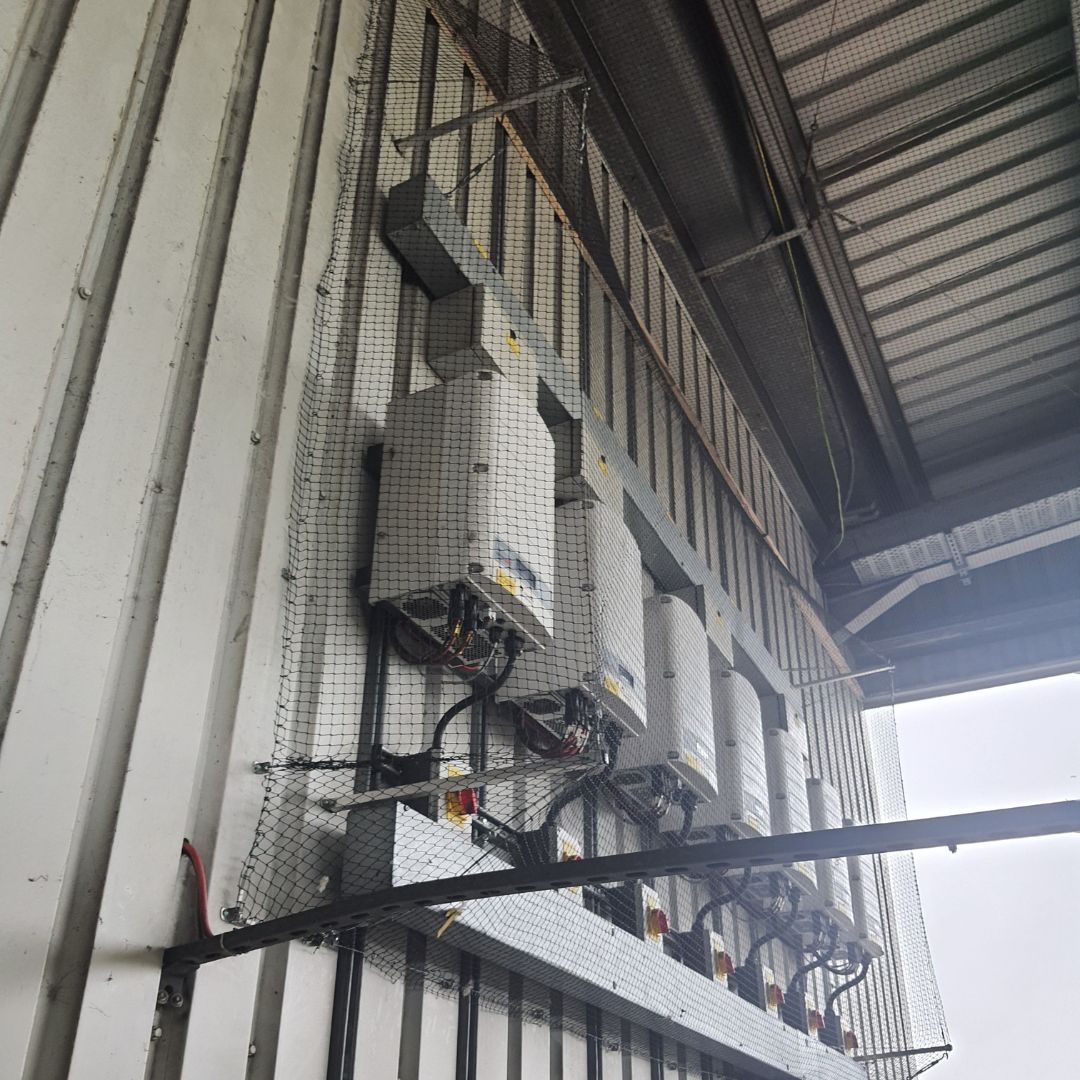
Maintenance Of Bird Proofing Protection
In addition to regularly checking and cleaning the bird proofing system, it is important to also inspect the roof for any potential access points that birds may be able to use to get onto the roof. This includes looking for any loose shingles, gaps, or cracks in the roof where birds may be able to squeeze into. Any potential access points must be sealed to ensure that birds are not able to access the roof.
In order to prevent birds from roosting on the solar panels, it is important to regularly trim trees and other foliage that may be near the solar panel area. This will help to remove any potential roosting spots for birds and will make it more difficult for them to access the roof.
It is also important to regularly inspect the gutter system and remove any debris and leaves that have accumulated to ensure that it is functioning properly and is not causing any blockages. If the gutter system is not in good condition, then it can lead to water pooling on the roof and creating ideal conditions for birds to inhabit.
Finally, it is important to regularly clean the solar panels to ensure that they are free of dirt, dust, and bird droppings. This will keep the panels working efficiently and prevent any damage that may be caused by a buildup of dirt and debris.
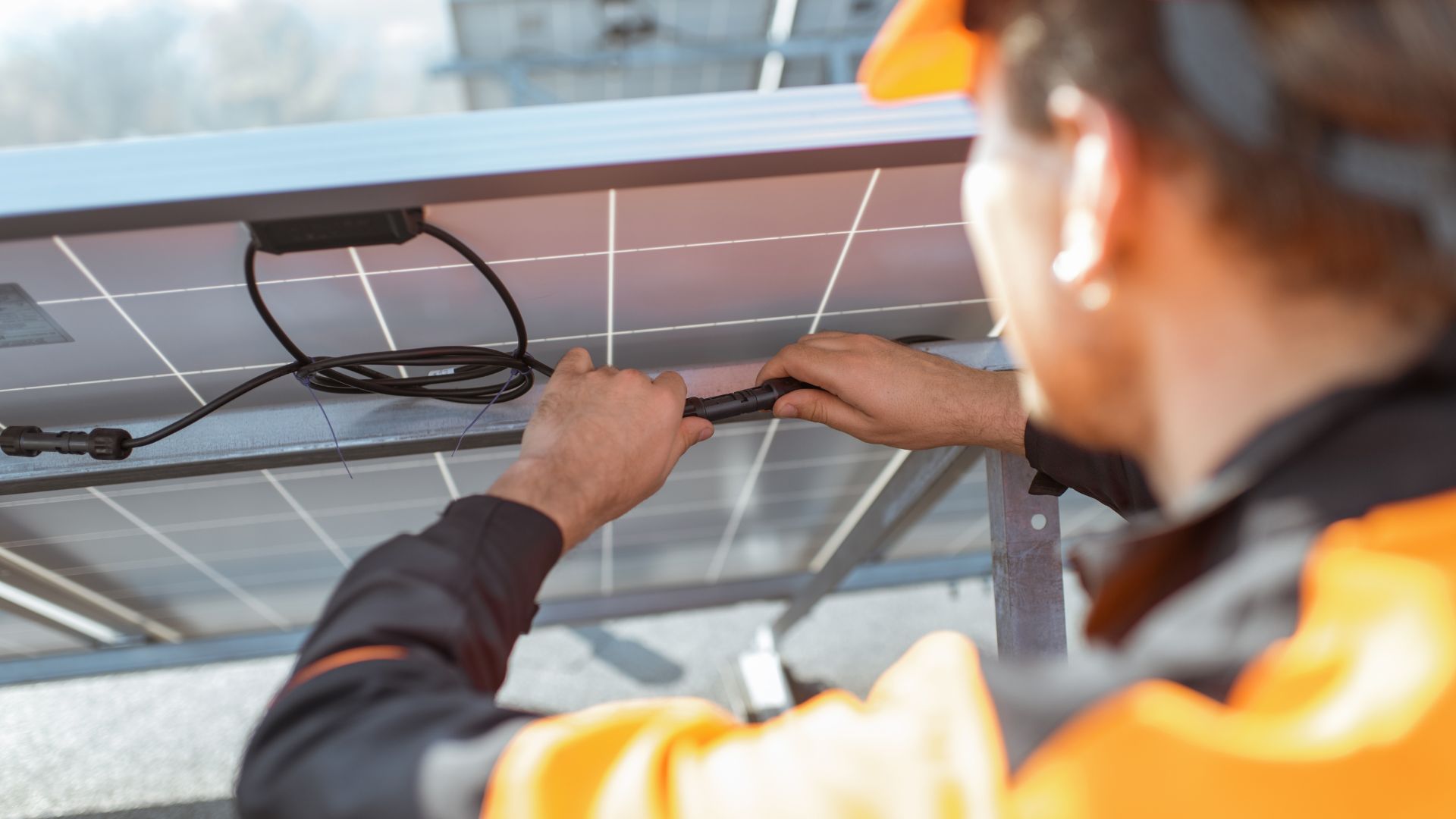
Professional Installation Of Bird Proofing Measures
When it comes to bird proofing solar panels, a professional installation is the way to go. Professional bird proofing services can provide an effective and lasting solution to keep birds away from your solar panels. They have the expertise and knowledge to assess the situation and provide the best bird proofing solution for your particular needs.
In addition, you should ask the professional bird proofing company about the cost of the services they provide. Request a detailed estimate that outlines the services, materials and labor costs. Make sure to ask about any additional charges such as for travel expenses or disposal fees.
Finally, ask the professional bird proofing service for a sample of their work. Request to see before and after photos of a job they’ve completed so that you can get an idea of their workmanship.
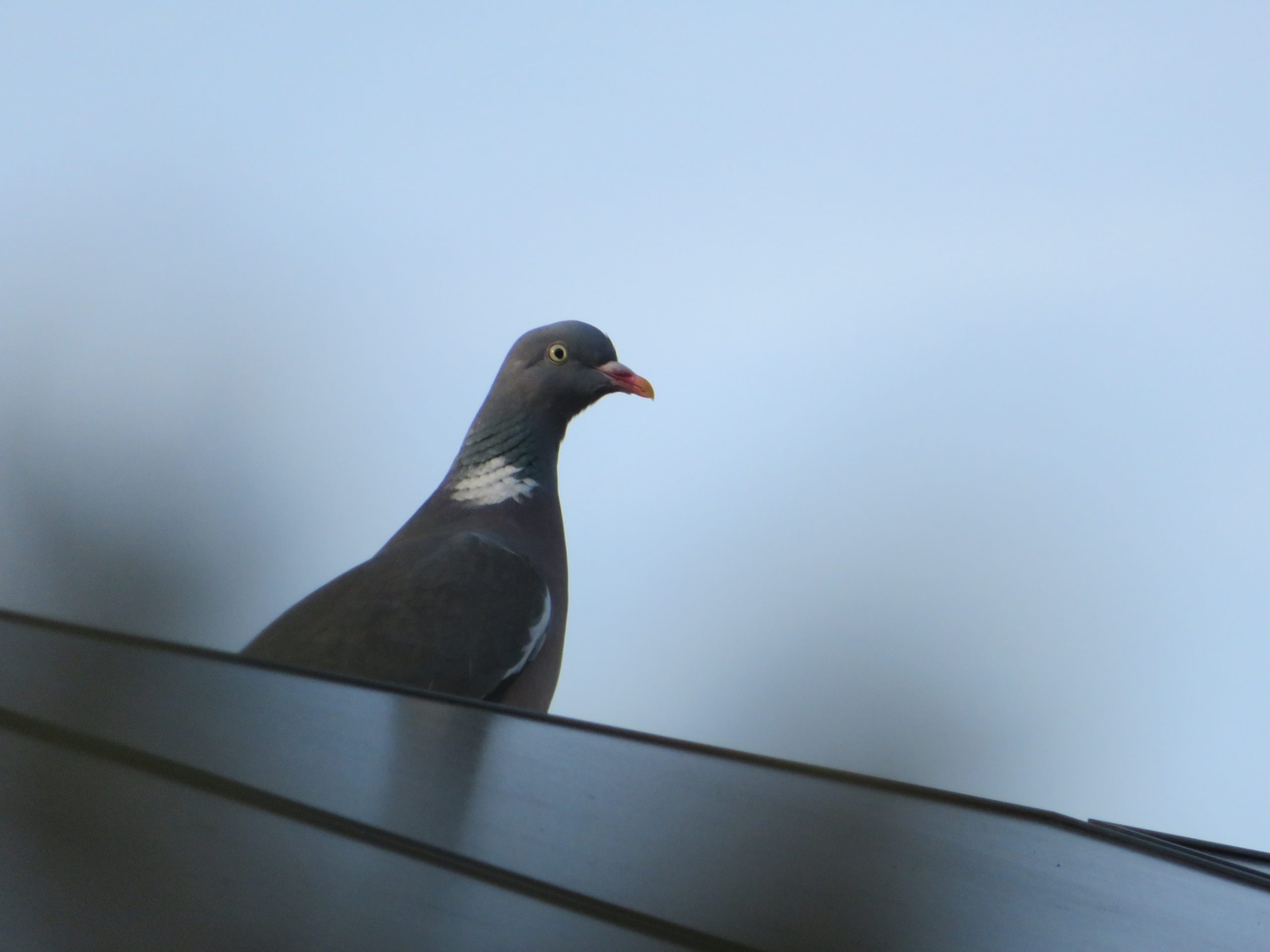
DIY Installation
For those willing to take on the task of bird proofing their own solar panels, there are a few considerations to keep in mind before beginning the project. It’s important to understand what materials are needed and how much time and energy will be required to complete the project. For DIY installation, only high-quality and durable bird proofing materials should be purchased.
When selecting bird proofing materials for a DIY installation, it’s important to consider the size of the bird that needs to be deterred. Bird mesh, spikes, netting, and electric bird repellents are all effective in keeping birds from accessing solar panels, however, the size of the holes in the mesh, the height of the spikes, the thickness of the netting, and the frequency of the electric repellents should all be taken into consideration when making a purchase.
Once the bird proofing materials have been purchased, the next step is to install them. Bird mesh is the easiest of the bird proofing materials to install. It can be simply stretched and attached to the side of the solar panel using sturdy screws and bolts. Bird spikes are also easy to install, however, they require more precise measurements to ensure that they are installed correctly and securely.
Bird netting can be more difficult to install as it requires a sturdy framework in order to be properly secured. Electric bird repellents should only be installed by a professional as they require a certified electrician to properly install them.
In addition to the installation of bird proofing materials, it’s also important to make sure that there are no cracks or openings in the solar panel that birds can use to access the panel. The gaps should be sealed with silicone caulk or other weather-resistant materials.
Should You Bird Proof Your Solar PV System?
When it comes to pigeon proofing solar panels, there are various considerations to keep in mind. Pigeon proofing solar panels is an important measure to take as it can help prevent damage and further deterioration. Additionally, it can help maximize the efficiency of the solar panels which can lead to a greater energy savings.
Regular maintenance is key. Checking for bird activity and preventing birds from accessing solar panels should be done on a regular basis. It is also important to periodically inspect the bird proofing option to ensure it is still in good condition.
In summary, pigeon proofing solar panels is an important measure to take in order to maximize the efficiency and longevity of solar panel systems. There are various bird proofing options available, as well as professional and DIY installation options.
Get In Touch!
Looking for a professional bird-proofing installation service for your commercial solar PV system? Our solar panel maintenance and solar panel monitoring team operates nationwide. Get in touch today to speak to one of our engineers.
